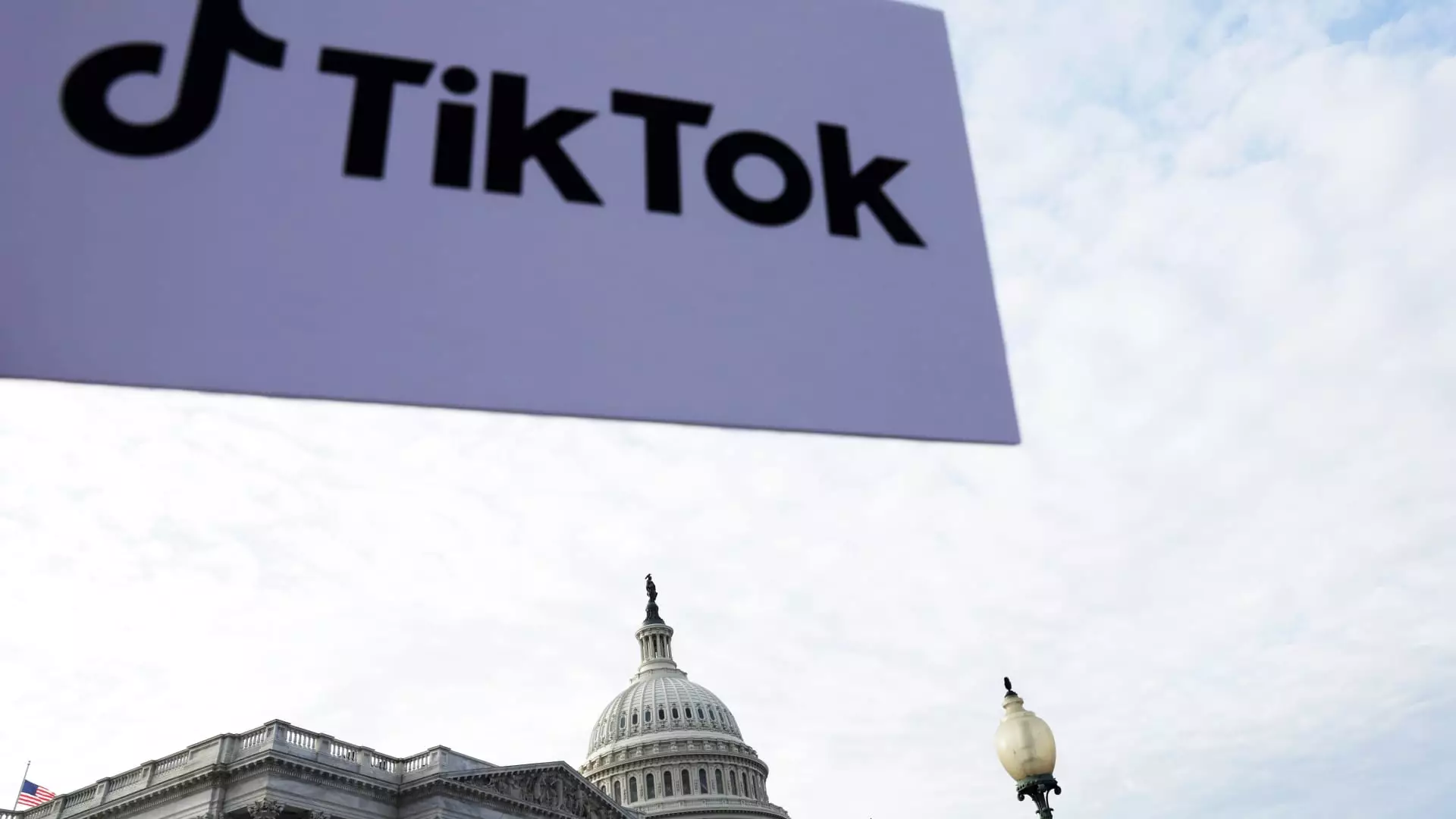As tensions rise between the United States and China, a significant legal and political showdown is shaping up around TikTok, the widely popular social media platform owned by the Chinese company ByteDance. The recent Communications by House Committee members to CEOs of major tech corporations, specifically Tim Cook of Apple and Sundar Pichai of Alphabet, signal an escalating pressure on these giants to conform to new U.S. laws. As of this moment, Congress is preparing to enforce policies that could eventually result in a ban on TikTok if ByteDance does not divest its stakes in the app by the looming deadline of January 19.
On the legal front, the U.S. Court of Appeals in Washington D.C. made a pivotal ruling by upholding legislation requiring ByteDance to relinquish control over TikTok. The court found that this law is a crucial measure to safeguard U.S. national security interests—particularly controversial given the app’s immense user base of approximately 170 million in the U.S. The lawmakers highlighted that Apple and Google, as primary app distribution channels, have a critical role in facilitating compliance. This incredible responsibility raises questions about corporate accountability in the face of national security concerns.
The letters from Reps. John Moolenaar and Raja Krishnamoorthi drew attention to the legal ramifications for app store operators. They noted that, should ByteDance fail to divest TikTok, these companies would have to discontinue services that support the app in the U.S. This directive brings to light the complexities of tech companies operating within a global marketplace while adhering to stringent national laws. As app store operators, Apple and Google now face a dilemma that intertwines business ethics with governmental expectations.
TikTok has publicly decried the legislation, labeling it unconstitutional and an infringement of First Amendment rights. The company has voiced concerns over the severe economic impact a ban would have, predicting losses upwards of $1.3 billion for U.S. businesses and content creators reliant on the platform. However, these figures, while alarming, fail to account for the broader implications of foreign influence over digital platforms.
Interestingly, TikTok’s efforts to challenge the law through the courts reveal a complex relationship between user rights and regulatory frameworks. Despite this, U.S. courts have determined that the government has the authority to intervene for reasons of national security, creating a legal space where businesses must navigate along treacherous lines. The courts have asserted that the law is “narrowly tailored” to address security issues, but that leaves unanswered questions about fair competition and digital freedom.
The Political Dimensions
The situation is further complicated by the changing political dynamics in the U.S. After a tumultuous first administration, perceptible shifts in the stance towards TikTok have emerged. Recently, tensions between the former Trump administration and TikTok appear to have softened, largely due to the influence of wealthy individuals such as billionaire Jeff Yass. As a major investor in ByteDance, Yass’s interests present a fascinating interplay between capital and politics, raising questions about the motivations behind regulatory actions.
However, Trump’s forthcoming administration remains a wildcard. Although he has not yet publicly asserted his intentions regarding TikTok, the prior attempt to ban the app indicates a willingness to leverage national security arguments for political ends. As new governmental strategies take shape, the uncertain fate of TikTok will be a touchstone for wider debates about digital privacy, foreign influence, and economic viability.
As the January deadline approaches and both TikTok and its corporate allies brace for potential upheaval, the intersection of technology and national policy will be closely scrutinized. Navigating this intricate landscape demands not only awareness of national security but also a balanced consideration of economic consequences, user rights, and corporate accountability. The debate surrounding TikTok is more than a mere conflict over an app; it represents a broader existential dilemma for technology in the age of globalization and political scrutiny. Companies, lawmakers, and consumers alike stand at a crossroad that demands introspection and a commitment to transparent governance in the digital age.

